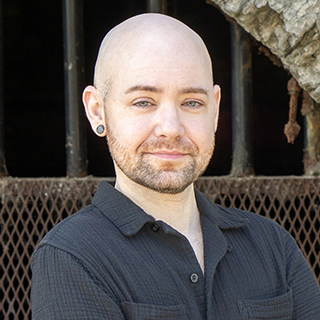Existential authenticity is the ongoing process of living in harmony with what we know to be most true about ourselves, our values, and our clear-eyed sense of reality. To do this, you’ll need to understand your beliefs, desires, needs, and personality traits. You can then make choices to live with congruence between inner self and outer expression. Authentic being is a continual choice, not one and done. What we need, want, and value changes as we age and evolve.
Note the words I’ve used here: “becoming,” “being.” Authenticity is not something you do, it is something you are. “Doing” authenticity is a performance of self. It can be hard to suss out the difference here, because we are used to performing. We perform at work, as a parent or child or sibling, as a friend, when we go to the grocery store or talk to our favorite barista.
Being, however, is a state of centered responsiveness in which we lead with our felt sense and knowing rather than reactivity or intellectual analysis. We have spent enough time exploring our inner worlds to know that we can trust our instincts, which blend emotion, bodily awareness, cognition, and past experiences. We are self-aware enough that we can differentiate between our true responses to a situation and what might be expected or demanded of us.
Some clients come to therapy with an identity crisis or wanting to figure out “who I really am.” This is a craving for authenticity. After a while, many people become dissatisfied with the personas they’ve been wearing to get through life. Sometimes they have a good sense of their values, desires, needs, and so on, but don’t know how to make the external shifts to live more congruently.
Other times, people can live for a long time without any intentional sense of self. In this case, existential therapy is about exploring their internal landscapes. What do their thoughts and behaviors tell us about their values and beliefs? What do their emotions say about their true needs and desires? As the client builds awareness, they can move toward authentic being. They’ll also face external challenges.
Existential anxiety, the fear of acknowledging our own freedom, might get in the way. Or what we’ve learned from our families—our attachment strategies—keep us trapped in certain reactive ways of performing. And of course, external expectations weigh many people down, demanding that we fill this or that role. Then therapy is about facing our fear, choosing new strategies, or refusing those expectations. In each instance, moving toward authenticity requires acting from our agency.
But that’s hard. Being ourselves in the world, in our full humanity, is scary. So many choose not to. We outsource our agency to others: family, partners, bosses.
Denying existential authenticity through bad faith
How many times have you said “I can’t _____”? In therapy, if I push enough on that word “can’t,” the truth that usually emerges is “I don’t want to,” “it’s not important enough to me,” “it will cause problems I don’t want to deal with,” or “I don’t want to break that social norm.”
Existentialist philosopher Jean-Luc Sartre called this “bad faith”, a form of self-deception by which we deny our inherent right to choose our actions and path. When we are in bad faith, we tell ourselves that the roles we have been given are our true selves. Or we spend all our time fulfilling others’ expectations of us. This is not what we usually mean when we talk about bad faith (being intentionally deceitful or trying to avoid a commitment). It is more an unconscious self-deception, an illusion of self.
The person trying to fit in with their community by doing tireless political advocacy work to the detriment of their well-being is in bad faith. Someone overly attached to a certain social identity, even when that attachment involves denying core aspects of self, is in bad faith. A highly successful professional who spends their nights miserable or hopeless is in bad faith.
To be authentic, we must prioritize recognizing these illusions. We choose to look at the parts of ourselves that we avoid in our daily lives and start to honor them as well as the parts that have been driving us. When we honor all of ourselves, we start doing the work of authenticity. And authenticity is part of personal liberation.
Understanding ourselves in all our complexity makes it easier to accept ourselves, which makes it easier to care for—even, dare I say, love—ourselves. We start to value ourselves and build connections with others who value us. And we value others. The feeling of worth that comes with existential authenticity is a reciprocal experience. Our sense of both the inner and outer world expands. This is a life-changing experience.

